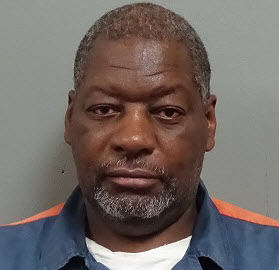Youtube Video above, published on Apr 26, 2016, produced for V.O.T.E by Alex Chemerinsky, Mariah Branyan
State juvenile lifers who waited decades for USSC to declare JLWOP unconstitutional subjected to further anguish as state stalls release
Of 364 cases, 8 convictions, including that of Charles Lewis, vacated and remanded to state trial courts after USSC Montgomery v. LA ruling, but under state statutes that are likely unconstitutional
Wayne County Chief Judge Robert Colombo appointing defense attorneys for re-hearings through SADO, co-opting defendants’ and trial judges’ choices
Juvenile lifers, ACLU, SADO conflicted over best solutions
By Diane Bukowski
June 1, 2016

Some of Michigan’s 364 juvenile lifers: (l to r, top through bottom row), Cortez Davis, Raymond Carp, Dakotah Eliason, Henry Hill, Keith Maxey, Dontez Tillman, Charles Lewis, Jemal Tipton, Nicole Dupure, Giovanni Casper, Jean Cintron, Matthew Bentley, Bosie Smith, Kevin Boyd, Damion Todd, Jennifer Pruitt, Edward Sanders, David Walton (photos show some lifers at current age, others at age they went to prison).
DETROIT –Despite two U.S. Supreme Court rulings declaring all juvenile life without parole sentences unconstitutional, Michigan’s 364 juvenile lifers, 147 of them from Wayne County, remain in limbo, as their cases face review under state statutes that often “do not provide a meaningful and realistic opportunity for release,” in the words of attorney Deborah LaBelle.
Most have spent long decades in prison since childhood.
Their continued agonizing wait to experience justice under the USSC rulings in Miller v. Alabama (2012) and Montgomery v. Louisiana (2016) represents yet more “cruel and unusual punishment.” The U.S. is the only country in the world that sends children to die in prison. The USSC and the United Nations have declared that practice “cruel and unusual and degrading,” with a UN expert adding that it amounts to “torture.”
Ironically, Detroit Mayor Mike Duggan just announced, “The Obama administration awarded [Detroit] a $5 million grant to establish a new workforce initiative that in its initial phase will help place 1,500 Detroiters in full-time jobs, including our returning citizens. We have partnered with the Michigan Department of Corrections on an effort to train and prepare those who will be released for jobs before they leave so that they can step out of jail or prison and into a job.”

Detroit Mayor Mike Duggan
Detroiters Charles Lewis, Edward Sanders, and Damion Todd want the chance to benefit from that grant and other resources NOW. Lewis and Sanders have spent 41 years in prison, while Todd has been incarcerated for 30 years, all since the age of 17.
“I’m hoping God will touch everybody’s hearts so they will give me and others a second chance,” Charles Lewis said prior to a post-conviction hearing May 26 on his case. He was likely falsely charged with first-degree murder in 1976. He just celebrated his 59th birthday at Lakeland Correctional Facility May 13, miles away from his loved ones.
“I represent a lot of juveniles coming behind me,” he went on. “Whatever I say or do is going to affect others. A lot of guys are waiting and wondering what is going to happen to me.” Lewis spoke on courtroom video as he awaited another post-conviction hearing in front of Wayne County Circuit Court Judge Qiana Lillard May 26.
Judge Lillard announced at the hearing that the Michigan Supreme Court had vacated Lewis’ sentence May 24 (under orders from the USSC), and remanded his case to the Wayne Circuit Court for re-sentencing pursuant to the state statutes, MCL 269.25 and MCL 269.25a. (See order at http://voiceofdetroit.net/wp-content/uploads/Charles-Lewis-MSC-order-on-USSC-remand.pdf).

Charles Lewis
Lewis said the USSC has so far remanded the cases of seven other state juvenile lifers, among those who pursued their appeals under the Miller and Montgomery rulings to the nation’s highest court.
“I don’t think that the Statute[s] that became effective in 2014 should apply to me,” in a JPay email to VOD, he said. “My resentencing was granted by Judge [Edward] Ewell on October 17, 2012. How can they apply a statute to me that became effective in 2014? My situation is unique because to my knowledge I am the only one that was granted a resentencing by the trial court [prior to 2014].”
The USSC first declared juvenile life without parole sentences unconstitutional in in 2012 in Miller, then affirmed that its ruling was retroactive in Montgomery on Jan. 25 this year. Since then, Michigan’s county prosecutors have been scrambling to set up re-hearings under state statutes passed in 2014 anticipating, and likely sabotaging, such a ruling.
 The state statutes, MCL 769.25 and 769.25a, provide for a portion of juvenile lifers to be automatically re-sentenced to terms of years, a minimum of 25-40 and a maximum of 60 years. They also provide for county prosecutors to select which juvenile lifers will receive full Miller re-sentencing hearings.
The state statutes, MCL 769.25 and 769.25a, provide for a portion of juvenile lifers to be automatically re-sentenced to terms of years, a minimum of 25-40 and a maximum of 60 years. They also provide for county prosecutors to select which juvenile lifers will receive full Miller re-sentencing hearings.
But Miller requires that ALL juvenile lifers receive hearings taking into account numerous special factors related to their youth. Since Miller and Montgomery, the U.S. Sixth Circuit Court essentially upheld U.S. District Court Judge Corbett O’Meara’s 2013 ruling that all Michigan juvenile lifers should be eligible for parole after 10 years and also left open the possibility of a challenge to the state statutes.
During Lewis’ hearing, his court-appointed attorney Felicia O’Connor of Foley & Lardner withdrew as counsel with little to say other than that she and her client differed on trial “strategy.”
Wayne County Assistant Prosecutor Jason Williams said that Circuit Court Chief Judge Robert Colombo is appointing defense attorneys where needed, and has handed off all of Wayne County’s cases to the State Appellate Defenders’ Office (SADO). Attorney Peter Van Hoek of SADO earlier told VOD they were not contesting the state statutes, but claimed that under them, all juvenile lifers WOULD receive hearings.
Further hearings on Lewis’ case in front of Lillard have been suspended until the appointment of new counsel. Normally, the trial judge is responsible for such appointments, but Lillard said she would recommend Lewis’ choice of an attorney to Chief Judge Colombo. Lewis has since contacted VOD, to say that attorney Valerie Newman of SADO contacted him regarding his attorney assignment, and that he was actually favorably impressed by her courtroom defense record. He said she told him she is filing an appearance as his counsel, but that he may receive other counsel from SADO. Newman is coordinating the project.
The Sixth Amendment guarantees a defendant’s right to counsel, and the USSC has generally upheld the right to counsel of one’s choice. Where the defendant has no specified attorney, the trial court normally appoints one, not the Chief Judge.
Also during Lewis’ hearing, Lillard promised, but did not officially order, an examination of a document signed by then Wayne County Circuit Court Judge Gershwin Drain, dated April 3, 2000, dismissing Lewis’ conviction and sentence, as well as an UNSIGNED (rubber stamped) 2012 order by Drain, refusing to carry out that order, declaring it fraudulent. (See below).

Lillard then promised, but did not rule, that she would assign independent parties to search for three cartons of Lewis’ court files. They conveniently disappeared after a prison counselor found the 2000 order by Judge Drain vacating Lewis’ conviction and sentence, ten years after the fact, in files sent to the prison by the Wayne County Clerk’s office.
Lewis has since protested his continued incarceration. He says an earlier Michigan Supreme Court ruling, People v Adkins, 436 Mich 878; 461 NW2d 366 (1990), held that in a similar case where court files had disappeared, the prisoner must be immediately released.
Lewis’ next hearing, according to the Third Judicial Circuit Court website, is set for June 10, in front of Judge Lillard.

Atty. Dawn Van Hoek, Director of SADO

Atty. Deborah LaBelle, with Mich. ACLU
Attorney Dawn Van Hoek, who heads SADO, had not returned a call for comment on whether their standing on the state statutes has changed since the Hill v. Snyder decision, before publication of this story. Likewise, VOD has not yet heard from Attorney Deborah LaBelle, who with the Michigan chapter of the American Civil Liberties Union (ACLU) won the Sixth Circuit decision, regarding whether the ACLU will challenge the state statutes.
The conflict between SADO and the ACLU over the matter is reflected among juvenile lifers, including Edward Sanders, who has served 41 years and hoped to be released immediately under the state statutes.

Edward Sanders with daughter Shay in photo taken about 20 years ago. He said she recently visited him again.
“Just because the Sixth Circuit action was a + for the ACLU and – for the AG (Attorney General) doesn’t mean that the State can’t or will not act under the statute,” he wrote to VOD. “They have every right to and will do so. The question is will they do so in good faith. . . .The cases of JLWOP will move on unless the ACLU files an action to stop them and the court will only take such an action after we demonstrate real harm. This may be the case with the good time with the older cases. Once good time is used against the time that inmates have served it will in some cases allow us to be released upon resentencing by the trial court. The AG knows this no matter what the state law says and to not to do the right thing will be not acting in good faith.”
MCL 769.25 says in part, “A defendant who is sentenced under this section shall be given credit for time already served but shall not receive any good time credits, special good time credits, disciplinary credits, or any other credits that reduce the defendant’s minimum or maximum sentence.”
Juvenile lifer Damion Todd wrote VOD on May 19, “I am constantly in a state of anxiety, as I eagerly await future Miller/Montgomery re-sentencing hearings, and/or a Hill parole board interview. I am prepared, as I have just finished completing another class (Personal Enrichment and Parole Readiness . . .) geared toward either one of these proceedings. I have been personally preparing myself for such relief long before the Roper v. Simmons (2005) case. Which is why I’m certain I’m experiencing so much anxiety. To counter these anxious feelings, I continue to work out, listen to my music, and engage in meaningful conversations. I have so many creative thoughts, questions, ideas, etc. that I want to put into practice now.”

Damion Todd after 30 years in prison.
He said he is currently working with a group of juvenile lifers at Kinross Correctional Facility in Michigan’s upper peninsula to facilitate more classes.
Todd, who is now 47, was charged with first-degree murder in 1986 at the age of 17, for the killing of a young woman which happened during a dispute between two groups of youths. It remains unclear who pulled the trigger.
He says the family of the young woman who was killed and the suffering they have experienced are extremely important to him. The young woman’s mother wrote him, “I forgive you Damion, and I want you to promise me that when you come home that you won’t let me and your family down.”
Todd says the mother has been on his visiting list for years and visited regularly before his change of location to inaccessible places like the Upper Peninsula, and the deterioration of her health over the last 30 years.
“Although one of my immediate goals is to be the best person I can under these conditions,” Todd said, “I am constantly and diligently working towards being a productive FREE MAN in society which is something I’ve never experienced before BECAUSE I CAME TO PRISON AS A CHILD.”
Related:
http://www.detroitnews.com/story/opinion/2016/06/02/prisoner-re-entry-detroit-comeback/85268614/
http://voiceofdetroit.net/2013/02/12/juvenile-lifer-reflects-on-hill-ruling-by-judge-omeara/
http://voiceofdetroit.net/2012/10/28/michigans-juvenile-lifers/
http://voiceofdetroit.net/2011/03/06/voice-of-juvenile-defendants/
#FreeMichiganJuvenileLifersNOW, #SaveOurChildren, #PrisonNation, #ENDMassIncarceration, #SchooltoPrisonPipeline, #Breakdownthewalls, #Beatbackthebullies, #Blacklivesmatter, #BlacklivesmatterDetroit, #Blackkidslivesmatter, #StandUpNow, #StopWaronBlackAmerica, #StopWaronourYouth, #Michissippigoddam





How do I get attention to my nephew who was sentence by Judge Michael Talbot and told he would make sure he never was in society again. He did not murder anyone but those seem to be the only cases anyone wants to look at. Michael has served 31 years for B & E and criminal sexual conduct. He was given 365 years without the possibility of parole. Who will look at his case. How does he fit into all of this???? He was sentenced as a youth.
Great article. The new 2014 statutes are at odds with Hill v Snyder. I don’t see how they are constitutional. Lewis’s case is bizarre. Nothing after Flint surprises me that happens in Michigan, especially in areas like Detroit. Someone should open a can of whoop-ass on whoever is trying to get away with applying rush-job statutes that go against Miller and Montgomery as well as Hill v. Snyder and another can of whoop-ass on whoever is responsible for disposing of Mr. Lewis’ files. Sigh…..probably way too much to ask. Promises, promises.